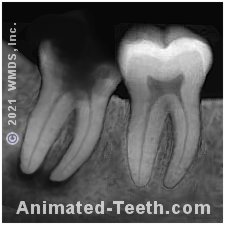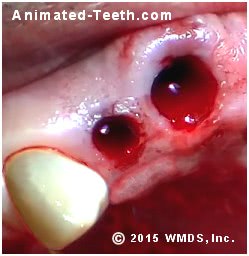Medical Conditions That Can Complicate Having a Tooth Pulled.
Tooth extraction planning for patients with medical concerns.
Tooth extractions are a common dental procedure, but certain medical conditions can introduce unique challenges and risks. This guide explores various health concerns that may complicate the process of having a tooth pulled, offering insights into how patients and dentists can work together to ensure a safe and successful outcome. By understanding the potential implications of their condition, patients can take informed steps to prepare for a safe and smooth extraction experience.
In this guide, we cover a wide range of health concerns, from cardiovascular issues and diabetes to allergies and hematological considerations, explaining how each may impact your upcoming oral surgery. Whether you’re planning for your first extraction or trying to understand how your complex health issues will need to be managed, this resource offers the insights you need.
Nothing is more important than your dentist knowing your complete medical history.
Before your dentist can offer to pull your tooth, they’ll first need to collect and evaluate your relevant medical information.
That’s because the most important thing they can do to avoid complications with your extraction is to carefully check that you’re fit for the procedure and healing process that follows. And if you’re not fully, then plan ahead for how your case will need to be managed.
a) They’ll need to know about your medical conditions both current and past.
A large part of the information that your dentist will need to collect will be about current and past medical conditions you’ve had, both treated and untreated. As you’ll discover below, there are a number of medical conditions that are well-known for posing risks and complications for oral surgery procedures.
b) They’ll need to see your “meds list.”
Your dentist will also require information about all of the medications, supplements, vitamins, and herbal compounds you take. That includes prescription and over-the-counter products, both professionally and self-prescribed.
Since this is an exhaustive subject on its own, we now discuss it on this page. Medicinal compounds of concern with tooth extractions.
Medical conditions of concern with tooth extractions.
As you can see from our list below, numerous medical conditions are well-known for creating risks and potential complications for oral surgery. And each one requires special consideration and possibly specific management when an extraction is performed.
- Problems with previous extractions.
- Congestive heart failure.
- Cardiovascular disease.
- Heart anomalies.
- Pacemaker.
- Hypertension.
- Hypotension.
- Hematological diseases.
- Leukemia / Lymphoma.
- Hemorrhagic diathesis.
- Anticoagulants.
- Hyperthyroidism.
- Diabetes Mellitus.
- Renal disease.
- Adrenal insufficiency.
- Cushing’s Syndrome.
- Asthma.
- Epilepsy.
- Skeletal diseases.
- Radiotherapy.
- Allergies.
- Fainting.
- Liver disease.
- Pregnancy / Lactation.
FYI: Our list isn’t meant to be all-inclusive nor is the information for each item overly detailed. The goal of this page is to provide a quick scan of conditions that are usually of most concern to dentists before pulling their patient’s teeth.
1) Complications with previous extractions.
While not an actual medical condition on its own, nothing could be of more interest to your dentist than knowing about complications you have experienced with previous extractions.
Knowing how you did with previous extractions is important.

X-ray of a severely decayed molar slated for extraction.
What you report can help them understand details about medical conditions you currently have (treated/untreated, controlled/uncontrolled, etc…), help them discover an undiagnosed medical condition you have, or simply help them understand how your body reacts to surgery or how otherwise you may require special attention.
So, even if they don’t specifically ask, make a point of telling them if you’ve had problems with extractions before.
2) Congestive heart failure.
The concern with congestive heart failure is whether the patient’s circulatory function can adequately meet the demands imposed by oral surgery.
Consultation with the patient’s cardiologist may be necessary. However, patients whose condition is well-controlled can typically tolerate routine extractions. As a precaution, the dentist may implement anxiety-control methods and administer supplemental oxygen during the procedure to help reduce the risks.
▲ Section references – Koerner, Fragiskos
3) Cardiovascular disease.
The elevated stress levels that sometimes accompany oral surgery can increase a patient’s risk of experiencing a cardiovascular emergency during their extraction procedure.
For patients who have experienced a cardiovascular episode within the past six months (such as angina pectoris/chest pain, myocardial infarction/heart attack, bypass surgery, or stroke), their physician is usually consulted before their extraction is performed. In some cases, delaying the patient’s treatment for several months may be recommended.
As a precaution, supplemental oxygen is often administered to at-risk patients, and their vital signs are monitored during their procedure. Implementing anti-anxiety measures can help reduce the patient’s risk of a cardiac event. Patients who take nitroglycerin tablets should bring them to their appointment.
▲ Section references – Koerner, Fragiskos
4) Heart anomalies.
A dentist needs to be aware of any heart anomalies their patient may have. This includes murmurs, heart valve damage, prosthetic (artificial) valves, surgically corrected heart disease, congenital heart conditions, or damage caused by rheumatic fever.
After evaluation, it may be determined that the patient is at risk for postoperative complications related to a heart-associated bacterial infection. If so, they will need to take prophylactic antibiotics before their oral surgery. Antibiotic premedication.
▲ Section references – Koerner, Fragiskos
5) Heart pacemaker.
Using certain types of auxiliary dental equipment may increase the risk of abnormal pacemaker function. The dentist simply needs to be informed of the pacemaker’s presence. Avoiding the use of these devices is not expected to substantially interfere with the patient’s treatment.
▲ Section references – Fragiskos
6) Hypertension / High blood pressure.
While precise cutoff points used by practitioners vary, individuals with a systolic pressure above 140-160 mm Hg or a diastolic value over 90-95 mm Hg are generally considered at risk. Consequently, their oral surgery is postponed until their physician can be consulted and their condition evaluated and managed.
▲ Section references – Koerner, Fragiskos
7) Orthostatic hypotension.
Patients prone to episodes of orthostatic hypotension (a sudden drop in blood pressure due to a change in position, such as when a patient is quickly returned to an upright position in a dental chair) can typically undergo an extraction as long as a few simple best practices, including diligent observation, are implemented.
▲ Section references – Fragiskos
8) Hematological conditions.
Patients who have anemia, clotting disorders, or other hematological conditions must be carefully evaluated prior to having an extraction due to their increased risk of severe hemorrhage.
Anemias of special interest in the dental setting are aplastic anemia, Biermer’s megaloblastic anemia (a type of pernicious anemia), hypochromic anemias (iron deficiency anemia, thalassemia), sickle cell anemia, and the condition methemoglobinemia. Other conditions include: Von Willebrand’s disease, thrombocytopenia, and hemophilia.
Measurement of the patient’s hematocrit and hemoglobin levels is indicated, as is consultation with the patient’s hematologist.
▲ Section references – Hupp, Fragiskos
9) Leukemia / Lymphoma.
Patients who have leukemia, lymphoma, and other hematologic neoplasms (cancers) are more susceptible to infection and may run a greater risk for postoperative hemorrhage (bleeding).
Consultation with the patient’s hematologist is recommended. Prophylactic antibiotics (a regimen aimed at preventing infection) are typically used in conjunction with the patient’s procedure. Emphasis on controlling bleeding during the procedure is also necessary.
▲ Section references – Fragiskos, Hupp
10) Hemorrhagic diathesis.
Hemorrhagic diathesis (a tendency of spontaneous, often severe, bleeding) can be a symptom associated with several medical conditions.
Fortunately, individuals with this complication are typically aware of it and report it to their dentist. When planning their extraction, consultation with the patient’s medical doctor is necessary, along with special management of their case, with a particular emphasis on controlling and managing bleeding.
▲ Section references – Fragiskos

Being able to control bleeding after pulling teeth is vital.
11) The use of anticoagulant compounds.
Some drugs, dietary supplements, vitamins, and herbal compounds can inhibit the blood clotting process. For this reason, the cases of individuals who take these compounds must be evaluated and managed appropriately.
▲ Section references – Fragiskos
We now discuss this topic on our page: Drugs of concern with tooth extractions.
12) Hyperthyroidism.
Hyperthyroidism places an extraction patient at risk for experiencing a thyrotoxic crisis (an acute worsening of their hyperthyroid symptoms triggered by the stress of their procedure) and possibly an associated cardiovascular event.
Oral surgery procedures are typically postponed until the patient’s medical doctor has been consulted and the function of their thyroid gland has been normalized (usually via the use of medication).
▲ Section references – Fragiskos
13) Diabetes Mellitus.
A dentist will have a number of questions for diabetic patients such as the type of diabetes they have (Type 1 insulin-dependent or Type 2 non-insulin-dependent) and if their condition is considered controlled or not.
Testing of a patient’s blood glucose level and consultation with their medical doctor may be needed before planning their procedure. Treatment is preferably deferred until the patient’s condition is well controlled.
When extractions are performed, the following management guidelines are usually followed.
- Ideally, the patient is scheduled for comparatively shorter procedures, preferably in the morning shortly after breakfast.
- The patient is encouraged to maintain their normal diet both before and following their surgery. If this isn’t possible (like after having a tooth pulled), the dosing of their diabetes medication should be adjusted.
- The dentist will need to have supplies on hand that can be used to treat emergency hyperglycemia or hypoglycemia situations.
- Infection concerns should be treated aggressively (antibiotic use, surgical drainage of pus).
- To reduce stress levels associated with the patient’s procedure, the use of antianxiety measures may be indicated.
▲ Section references – Fragiskos, Hupp, Koerner
14) Renal disease (Kidney disease).
Renal diseases of significant concern to a dentist when planning a patient’s extraction include acute glomerulonephritis, chronic glomerulonephritis, and renal failure. Consultation with the patient’s nephrologist is indicated.
Chronic renal failure.
Individuals who experience this condition often have associated anemia, which, in advanced cases, can place them at risk of hemorrhagic diathesis (spontaneous bleeding). These patients frequently also have associated hypertension. Both conditions must be monitored and managed when teeth are removed.
Renal dialysis.
Patients undergoing hemodialysis require special management. Elective extractions are best scheduled for the day after their dialysis treatment. The use of drugs that are metabolized or excreted via the kidneys must be avoided or managed. Patients with shunts must undergo evaluation to determine the necessity of antibiotic premedication.
▲ Section references – Fragiskos, Hupp
15) Adrenal insufficiency.
When a person is placed in a stressful situation like having a tooth pulled, their adrenal gland supports their body’s needed response by increasing its production of hormones (notably cortisol, the “stress” hormone).
If the patient’s adrenal gland is unable to produce a satisfactory level of hormones, they are at risk of experiencing acute adrenal insufficiency. Possible symptoms include: hypotension (low blood pressure), syncope (fainting), nausea, confusion, headache, and vomiting.
Addison’s disease, corticosteroid therapy, or other medical conditions may be the cause of the gland’s inability to respond adequately. Use this link for more information about issues associated with tooth extractions and taking Corticosteroid medications.
The patient’s case should be managed so their level of anxiety is kept to a minimum. Administering supplemental steroids might be indicated (consultation with the patient’s medical doctor is needed).
▲ Section references – Fragiskos, Hupp
16) Cushing’s Syndrome.
This condition involves an overproduction of hormones from the adrenal gland’s cortex, notably the hormone cortisol.
Consultation with the patient’s medical doctor is indicated. Extractions are frequently performed in a hospital setting. Sedation is used to lower the patient’s stress level during their procedure. Since Cushing’s Syndrome patients may have osteoporosis of the jawbone, the level of force used during their extraction process is kept to a minimum.
▲ Section references – Fragiskos
17) Asthma.
The symptoms of asthma may be exacerbated by the stress associated with having a tooth pulled, possibly triggering an acute asthmatic attack.
The use of sedative medication during the procedure can help to minimize the patient’s level of stress, as can shorter appointments. The dentist must be prepared to manage the patient’s attack if one should occur.
▲ Section references – Fragiskos
18) Epilepsy.
Epileptic seizures can be triggered by stress, severe pain, and administering large doses of local anesthetic (the kind of drug used to numb up teeth). Of course, any of these may be encountered when having a tooth pulled.
A dentist must manage their patient’s case so the potential for experiencing these events is kept to a minimum. The patient’s medical doctor may recommend the administration of additional anticonvulsant medication before the surgery is performed. The dentist must be prepared to manage their patient’s seizure if one occurs.
The dentist needs to be aware of what’s typical for the patient in terms of seizure frequency, severity, and duration. Appointments should be scheduled within a reasonable amount of time following the person’s last dose of seizure-control medication.
▲ Section references – Fragiskos
19) Diseases of the skeletal system.
Conditions of concern include: osteoporosis, osteopetrosis, osteogenesis imperfecta, cleidocranial dysplasia, Marfan’s syndrome, Down’s syndrome, idiopathic histiocytosis (histiocytosis X), Gaucher’s disease, Paget’s disease, fibrous dysplasia of the jaws, and encephalotrigeminal angiomatosis (Sturge–Weber syndrome).
When one of these conditions is involved, the patient may be at greater risk for jaw fracture during the extraction process, excessive hemorrhage (bleeding), and delayed surgical site healing due to postoperative infection. Some conditions also have associated heart disease considerations.
When performing a patient’s extraction, the dentist will need to use the least amount of extraction force possible, possibly use additional agents to control bleeding, and when indicated, implement the use of antibiotics to minimize the risk of postoperative infection.
▲ Section references – Fragiskos
Important note: A history of having taken medications used to treat certain bone-related conditions (such as Bisphosphonate Drugs ) must be reported to your dentist before having your tooth pulled. Failure to do so can result in serious postoperative complications.
20) Radiotherapy patients.
Patients whose medical treatment has included irradiation of their head and neck have an increased risk of experiencing complications with bone healing (osteoradionecrosis) and infection following extractions.
Case management frequently includes the use of pre and post-treatment antibiotic therapy, if available, hyperbaric oxygen therapy, and close monitoring of the patient’s postoperative healing progress. These cases are usually best handled by an oral surgeon.
▲ Section references – Hupp
21) Allergies.
Patients may be allergic to substances routinely used during extraction procedures. This includes local anesthetics (the type of medication used to numb up teeth), antibiotics, analgesics (pain relievers), anxiolytic (anti-anxiety) drugs, or dental materials or products.

Report all of your known allergies. Cross-reactivity between drugs is possible.
The dentist must make an effort to identify the patient’s known allergies in advance and then avoid that item’s use. They must also be prepared to manage their patient’s allergic reaction should one be triggered.
▲ Section references – Fragiskos
22) Fainting.
Common causes of fainting are emotional stress, severe pain, and orthostatic hypotension (a sudden drop in blood pressure due to a change in position like when a patient is quickly returned to an upright position in a dental chair).
Each of these factors may be associated with having a tooth pulled and therefore must be managed during the extraction procedure. The dentist must be prepared to manage their patient’s fainting episode if one should occur.
▲ Section references – Fragiskos
23) Liver dysfunction.
Liver disease (hepatitis, cirrhosis, alcoholic hepatitis) places the dental patient at increased risk for complications with bleeding. Additionally, the use of medications that are metabolized (broken down) by the liver must be carefully monitored.
Clotting tests (partial prothrombin time, prothrombin time) may be needed to evaluate persons with severe liver damage and their ability to tolerate oral surgery. Patients who have infectious liver disease can typically be managed adequately using routine precautions.
▲ Section references – Fragiskos, Koerner
24) Pregnancy / Lactation.
Tooth extractions may be performed for both pregnant and breastfeeding women. However, there are a number of guidelines and precautions that must be followed. We now discuss this topic here: Tooth extraction considerations with Pregnancy and Breastfeeding.
Our list of conditions is not meant to be all-inclusive.
It would be impossible for us to include every medical condition that has the potential to be a concern for a dentist when planning their patient’s extraction. Our primary goal here is to simply give you an idea of the wide range of conditions that must be considered and evaluated.
So, don’t be overly influenced by the sampling of conditions we have chosen to discuss. Instead, realize that all of the conditions you have (treated or untreated, no matter how minor you think they are) must be reported to your dentist so nothing is overlooked and your extraction can be performed safely.
What’s next?
We have more info about extraction planning.
Page references sources:
Fragiskos FD. Oral Surgery. Chapter: Medical History.
Hupp J, et al. Contemporary Oral and Maxillofacial Surgery. Chapter: Preoperative Health Status
Koerner KR. Manual of Minor Oral Surgery for the General Dentist. Chapter: Patient Evaluation and Medical History.
All reference sources for topic Tooth Extractions.